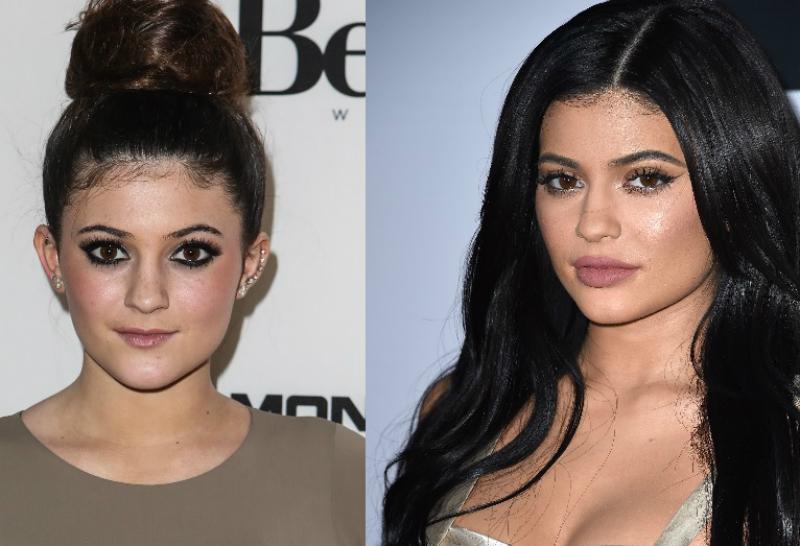Exploring the Psychological and Social Aspects That Drive Individuals to Consider Plastic Surgery as a Method of Enhancement
The decision to go after cosmetic surgery commonly expands past simple aesthetics, linking with psychological and social characteristics that merit extensive evaluation. Variables such as self-confidence, prevalent societal charm requirements, and the prevalent influence of social networks converge to shape private motivations for medical enhancement. As these impacts end up being significantly prominent, understanding the underlying social and emotional contexts is crucial. What remains to be explored is the profound impact these factors have not just on individual identification but additionally on wider societal standards and worths bordering elegance and acceptance.
The Role of Self-worth
Self-esteem substantially influences a person's decision to pursue cosmetic surgery. Individuals with low self-esteem commonly view themselves in an adverse light, leading to sensations of inadequacy regarding their physical appearance.

Ultimately, the function of self-worth in the decision-making process relating to plastic surgery highlights the complex interaction in between body photo, personal contentment, and mental health and wellness. Understanding this partnership is critical for medical care professionals to make certain that clients are making notified choices rooted in reasonable assumptions and emotional well-being.
Societal Beauty Criteria
Influenced by pervasive media portrayals and social narratives, societal elegance standards play a critical function fit people' understandings of their own bodies. These criteria are commonly characterized by an idealized type of charm that highlights characteristics such as symmetry, youthful vigor, and slimness. As these suitables are bolstered with various networks, including advertising, television, and film, individuals often internalize these messages, causing discontentment with their all-natural look.
The effects of these social standards prolong past visual choices; they can affect self-confidence, psychological wellness, and interpersonal relationships. People who view themselves as disappointing these requirements may experience sensations of inadequacy, motivating a desire for cosmetic surgical procedure as a way of accomplishing societal authorization. This quest is often fueled by the belief that complying with these perfects will boost not just physical look however also social standing and individual satisfaction.

Impact of Social Network
The effect of societal appeal criteria is additional enhanced by the surge of social media sites systems, where curated photos and idealized depictions of appeal are ubiquitous. Individuals are constantly subjected to filteringed system and modified photos, which often portray unattainable physical attributes. This exposure cultivates a culture of contrast, leading people to evaluate their very own look against these commonly impractical criteria.
Social network influencers and stars regularly advertise cosmetic procedures, normalizing the idea that surgical improvements are a viable ways for attaining social perfects (plastic surgery rancho cucamonga). The presence of these enhancements can produce an assumption that going through plastic surgery is a basic method, consequently influencing individuals to think about comparable interventions as a path to boosted self-esteem and social approval
Moreover, the interactive nature of social networks permits prompt responses through likes and remarks, even more reinforcing the desire to adjust to prominent elegance criteria. Such interactions can worsen feelings of insufficiency and drive individuals toward plastic surgery as a way of obtaining validation. Inevitably, social networks plays a crucial function in forming assumptions of charm, which substantially influences the decision-making procedures bordering cosmetic surgical his comment is here treatment.

Social Perspectives on Look
Throughout numerous societies, understandings of appearance are deeply rooted in historic, social, and economic contexts, forming people' views on elegance and worth. In lots of societies, appearance works as a substantial pen of identification, affecting social condition, professional possibilities, and personal relationships. As an example, in some societies, light skin is typically associated with wealth and privilege, while others may glorify darker complexion as icons of toughness and authenticity.
In addition, conventional beauty requirements are frequently continued with social narratives, media depictions, and household influences, bring about differing ideals throughout different regions (plastic surgery rancho cucamonga). In Western cultures, the emphasis on youth and physical conditioning frequently drives people towards aesthetic improvement, while in certain Eastern societies, more subtle changes straightened with traditional appearances might be preferred
Globalization and the expansion of digital media have better made complex these dynamics, developing a hybridization of elegance suitables that goes beyond geographical borders. As people significantly navigate these social narratives, the stress to conform to particular appearance requirements can result in the desire for plastic surgery, mirroring a complex interplay of individual aspirations and cultural values. Understanding these cultural point of views is essential in resolving the inspirations behind plastic surgery considerations.
Psychological Effects of Plastic Surgery
Several individuals looking for plastic surgery report experiencing extensive psychological impacts that can dramatically modify their self-perception and psychological well-being - plastic surgery rancho cucamonga. The wish for physical improvement typically originates from underlying problems such advice as reduced self-confidence, body dysmorphic disorder, or societal pressures concerning charm requirements. For some, the instant post-operative stage can result in a short-term increase in self-esteem and satisfaction with their look, cultivating a sense of empowerment
Nevertheless, these favorable feelings may not be enduring. Research study shows that while some clients experience boosted self-worth, others might deal with heightened anxiousness or clinical depression if their assumptions are not satisfied. This disparity can develop from unrealistic suitables continued by media representation and social stories surrounding elegance.
Additionally, the psychological implications of plastic surgery prolong past the person. Relationships with friends and family may be stressed as social dynamics change, resulting in feelings of isolation or alienation. Ultimately, the emotional effects of cosmetic surgical treatment are complex and complex, needing cautious factor to consider by both possible clients and health care providers to make certain enlightened decision-making and practical assumptions.
Final Thought
In final thought, the choice to seek cosmetic surgical procedure is considerably affected by a mix of self-worth concerns, societal appeal criteria, and social viewpoints on appearance. The prevalent reach of social media sites even more exacerbates these pressures, advertising unrealistic ideals that individuals usually make every effort to attain. Comprehending these social and psychological aspects is important for attending to the inspirations behind plastic surgery, highlighting the demand for a more nuanced conversation surrounding charm and self-acceptance in modern society.
The choice to go after cosmetic surgical treatment typically prolongs past mere looks, intertwining with social and emotional characteristics that warrant complete exam. Inevitably, social media plays a crucial role in forming perceptions of charm, which significantly influences the decision-making processes surrounding cosmetic surgical treatment.
As people increasingly browse these social stories, the stress to adjust to particular look criteria can lead to the desire for cosmetic surgical procedure, showing a complex interaction of social worths and personal desires.In conclusion, the choice to go after cosmetic surgical procedure is substantially influenced by a combination of self-worth concerns, societal visit beauty requirements, and cultural point of views on look. Comprehending these social and psychological variables is vital for resolving the inspirations behind cosmetic surgical procedure, highlighting the requirement for a more nuanced discussion surrounding appeal and self-acceptance in contemporary society.